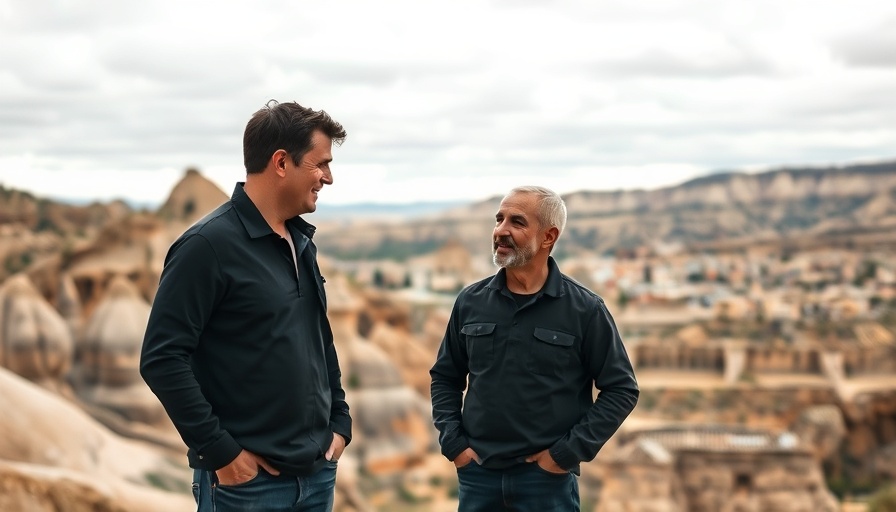
How Christianity Flourished Under Persecution in Cappadocia
In the heart of Cappadocia lies a spirit of resilience that echo echoes throughout Christian history. As we gaze at the stunning fairy chimneys and layered rock formations, we can't help but reflect on the often untold story of how Christian communities thrived despite fierce persecution. Exploring the breathtaking landscapes, like the underground cities and the cave churches, one begins to appreciate the extent and speed of Christianity's spread, even in hostile environments.
In AC Podcast #551 - Christians, Captives, and Cappadocia: Learning from our Past, the discussion dives into the historical context of early Christian communities, exploring key insights that sparked deeper analysis on our end.
The Rapid Spread of Christianity: Overcoming Obstacles
Historically, Christianity expanded rapidly across regions that faced persecution. The apostle Peter addressed these communities in his letters to the scattered believers, offering hope amid their trials. This resonates today as we witness the ongoing challenges faced by Christians around the world. For those believers in Cappadocia, enduring adversities shaped their identity and fueled a passion for spreading the Gospel, often in secret. Today, we must ask ourselves: how can we apply these lessons of perseverance and faithfulness in our own lives?
A Historical Perspective: Understanding Early Christian Persecution
The persecution of Christians in the Roman Empire began as localized incidents and escalated into widespread violence under emperors like Nero and Diocletian. By the time Diocletian officially outlawed Christianity in 303 AD, many believers had already experienced exclusion from their synagogues and faced hostility from their Roman neighbors. Understanding this historical backdrop aids us in appreciating the courage of the early Christians who hid in intricate cave systems, gathering to worship in secrecy.
Resilience in the Face of Adversity: Lessons from Early Christians
In Cappadocia, remnants of hiding places and worship sites remind us of the grit demonstrated by early believers. These settings not only represent desperation but also a commitment to their faith. The doorways of the underground cities, such as Derinkuyu, show us where thousands once sought refuge. Similarly, they remind us to cultivate our own spiritual shelters, wherein we may draw strength from one another and strengthen our resolve in practicing our faith boldly.
The Call to Modern Believers: Recognizing Contemporary Persecution
Today, while we may not face the same dangers as early Christians, we still encounter societal pressures and ridicule. The trivializing of faith in popular culture can lead to a less tangible form of persecution, which can silently undermine the resolve to openly share our beliefs. This highlights the importance of building community and supporting one another in faith. As Peter's epistle encourages us to remain humble and steadfast, we must lean into God’s message of grace even amid minor inconveniences. Could this softening of faith in the West serve a greater purpose as a reminder to hold fast to hope?
Remembering Our Brothers and Sisters in Faith Today
The plight of modern Christians facing severe persecution globally reminds us of those early believers who endured much for their faith. In countries like Pakistan and North Korea, many still risk their lives to practice Christianity. This stark reality invites us to reflect on our privileges and responsibilities as believers in a relatively safe environment. We are called not only to pray for suffering brethren but to advocate for their rights and underscore the beauty of the diverse tapestry of faith that connects us across nations.
As we conclude this reflection inspired by Cappadocia, may we carry the lessons of those early Christians in our hearts. Their stories of perseverance amid tumultuous times can ignite a fresh passion for faith and unity among believers worldwide. Let us actively engage in discussions and actions that encourage our communities, leveraging our platforms to shed light on persecuted Christians and together channel our strength into steadfastness for the Gospel, as we love God and love others.
 Add Row
Add Row  Add
Add 








 Add Row
Add Row  Add
Add 

Write A Comment